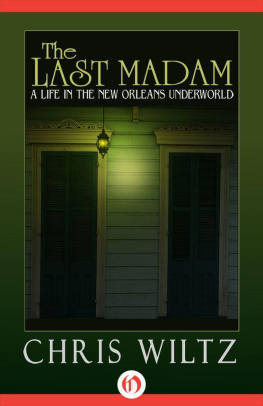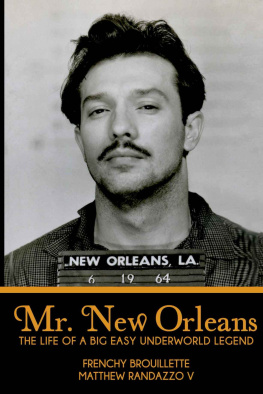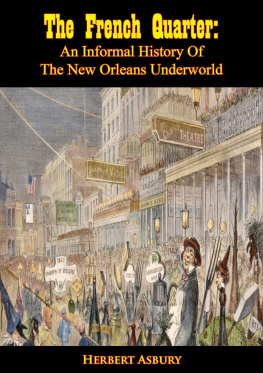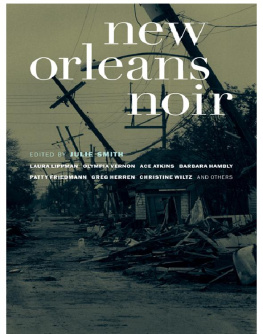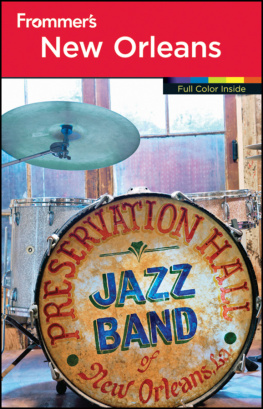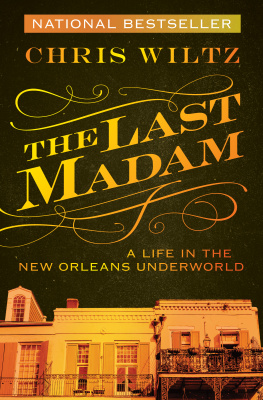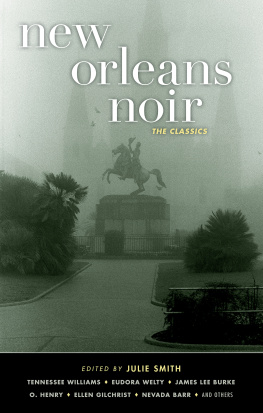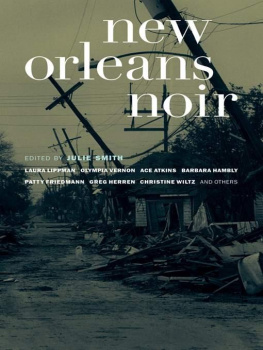

To the girls
Contents
CHAPTER ONE
Lemon Pie
Norma Wallace stood on a bed of pine needles deep in the Mississippi woods, dressed in a smart red pantsuit and low-vamp leather pumps; she spread her feet apart, sighted down the barrel of her .410 shotgun, and blew the head off the rattlesnake in front of her. There had been a time, not so long ago, when shooting a rattler made Norma feel like a cowgirl. Now the very sight of one made her jumpy as an old maid. The isolation of the place was getting to her. Her Irish setter, Rusty, ran ahead as she walked to the cedar-shingled house. He seemed to be her only company lately.
Normas hands shook slightly as she put the gun on the rack. Settling herself on the plush-velvet contour sofa facing the brick fire-place, she listened for the sound of a car on the two-and-a-half-mile road to the house. Her white hair glowed in the firelight.
Normas young husband, Wayne Bernard, didnt always make it home these days. Sometimes he called, but it was getting dark now, and shed heard nothing from him. She could feel a long night stretching out before her.
The clock on the mantel softly chimed seven. Norma got a rush of the old excitement and anticipationwhat was this night going to bring? Shed had that feeling at nightfall for over forty years, when she ran her business in the French Quarter. Tonight it passed quickly, because now her life was all about waiting, worrying, and remembering. To pass the time she started dictating into the tape recorder beside her. Her hope was that shed come up with a best-selling book about her life and times as the last madam of New Orleans to run an elegant French Quarter parlor house.
How do you write a book about forty years of intrigue, fools, deals, and propositionsthat panorama so peculiar to New Orleans? she mused. Her voice was deep and raspy, though not the whiskey voice given to madams in the movies. She had a trace of an accent, not Southern but New Orleans, that slow way of talking associated with downtown, an accent that sounds like Manhattan in a tropical heat wave.
More to the point, she wondered how shed gotten from a life of adventure and intrigue to this one, that of the disappointed wife waiting at home. That word disappointed triggered her memory, and she began telling her tape recorder a story about her childhood, the only story she chose to tell about her early years.
The greatest disappointment of my life happened when I was eight. We were so poor that we used to move instead of pay the rent. An old colored man with a horse and wagon would move us for two bucks, which was cheaper than paying eight dollars for the house.
Many people were poor in 1909, as revealed by the number of empty houses on New Orleanss streets. People would all hole up in the same place because it took four or five of them to make a living and pay the rent. But we were just my parents, my brother, Elmo, and me. So we would move about every three months, after the landlord knew he was beat and put us out. We finally got so hot in one neighborhood that we had to move to another section of town.
The family found a small place with no gas or electricity on Salcedo Street in what Norma called the back part of town, now Mid-City. The amenities were a coal-burning stove and an outhouse.
Eight-year-old Norma would have liked to have had a new dress, something pretty and frilly, but mostly she wanted something to eat. There wasnt much to cook on that old stove, and Norma was hungry all the time. The worst of it was that on the corner was a bakery. They baked little lemon pies, and Norma could smell them, their mouthwatering aroma filling the neighborhood, the house, even her dreams. What she wouldnt have given for one of those pies! They sold for ten cents each, as out of reach as a party dressor the moon. But that didnt keep Norma from nagging her mother about them.
Then one evening her father brought home a boarder, Mr. McCann. How was he going to board with us? We didnt have anything to eat! I dont even know where he slept because I dont remember but two beds. But he came to live with us. He was an alcoholic, and he used to drink Four Roses. Ive remembered Mr. McCann with his Four Roses all my life. He stayed pretty drunk, but we needed the help bad so we would take a chance on anything.
Every day I smelled those lemon pies and I was dying for one. Lemon pie became the big thing in my life. I would needle my motherI have to have one!
Normas mother finally said, When Mr. McCann pays next time, Ill get you a lemon pie. His rent was due in three weeks. Norma was counting the days.
So here it was three weeks later, and Im figuring the next day Ill be eating lemon pie. That evening Mr. McCann went out to the toilet in the yard and he didnt come back. After a long time my mother decided she better go check on him. She came back pretty shook up. Mr. McCann had drunk carbolic acid and he was dead, dead.
And that was the end of lemon pie for me. Norma laughed.
That was the first great disappointment of my life.
Four years after the suicide of Mr. McCann, Norma began to figure out how to get what she wanted. Before that her life was all about deprivation, and her earliest memories were of poverty.
When Norma Lenore Badon was only three months old, her parents moved from McComb, Mississippi, where she was born, to New Orleans. Her father, John Gauley Badon, had come from Covington, Louisiana, on the north shore of Lake Pontchartrain across from New Orleans. Her mother, Amanda Easley Badon, was the daughter of Warren Easley, the first mayor of McComb.
In 1972, when the writer Clint Bolton profiled Norma for New Orleans magazine, she told him that both her parents had come from good families, that her mother was college educated at Bowling Green, Kentucky, and played the piano. She told Bolton that all her mother had ever wanted was to get to New Orleans. She didnt tell him why, though, or what happened after the family got there. Nor did she confide to her tape recorder the horror of her first twelve years, except to tell about the suicide of Mr. McCann, a pivotal episode in her young life, to be sure, but one that she told in a spirit of self-mockery.
Years later Norma told her sister-in-law Helen Moran, the wife of her half brother, J. G. Badon, that her mother had wanted to come to New Orleans to live the wild life, and that her own mother had put her out on the streets as a prostitute. To other confidantes she recalled how her mother had left her and Elmo, who was five years younger than Norma, alone in the French Quarter for weeks at a time after Gauley Badon abandoned the family because he caught Amanda in bed with another man. The children were left with no money and no food, in a house with no electricity or heat. Elmo stole food to keep them alive, until the black families who were their neighbors realized that the children were starving and uncared for and took them in. When Norma became wealthy she made it possible for those people to own their homes.
She said to Helen, Ill tell you what kind of mother I had. I can remember her bathing Elmo, and shed take his little penis and say, Boy, this is going to make some women happy!
But that was confidential information, not for public consumption in either Boltons profile or Normas memoirs. Norma held her familys secrets close, not because she was ashamed but because she had great family loyalty. In spite of Amandas irresponsibility, Norma bought her a house and took care of her until she died. She resented that Gauley had abandoned her and Elmo, and that he later moved to Slidell, a town about forty miles from New Orleans, where he started a lumber business with his brothers, one of whom, Eugene, became the town sheriff and the other, Alonzo, the mayor. Gauley also started another family, a respectable family. But he did not fare as well as his two brothers. He had drinking problems and money problems, and somewhere along the line Norma bought him a piece of property called Shady Pond, on the Pearl River, which she then said shed inherited after Gauley died.
Next page
